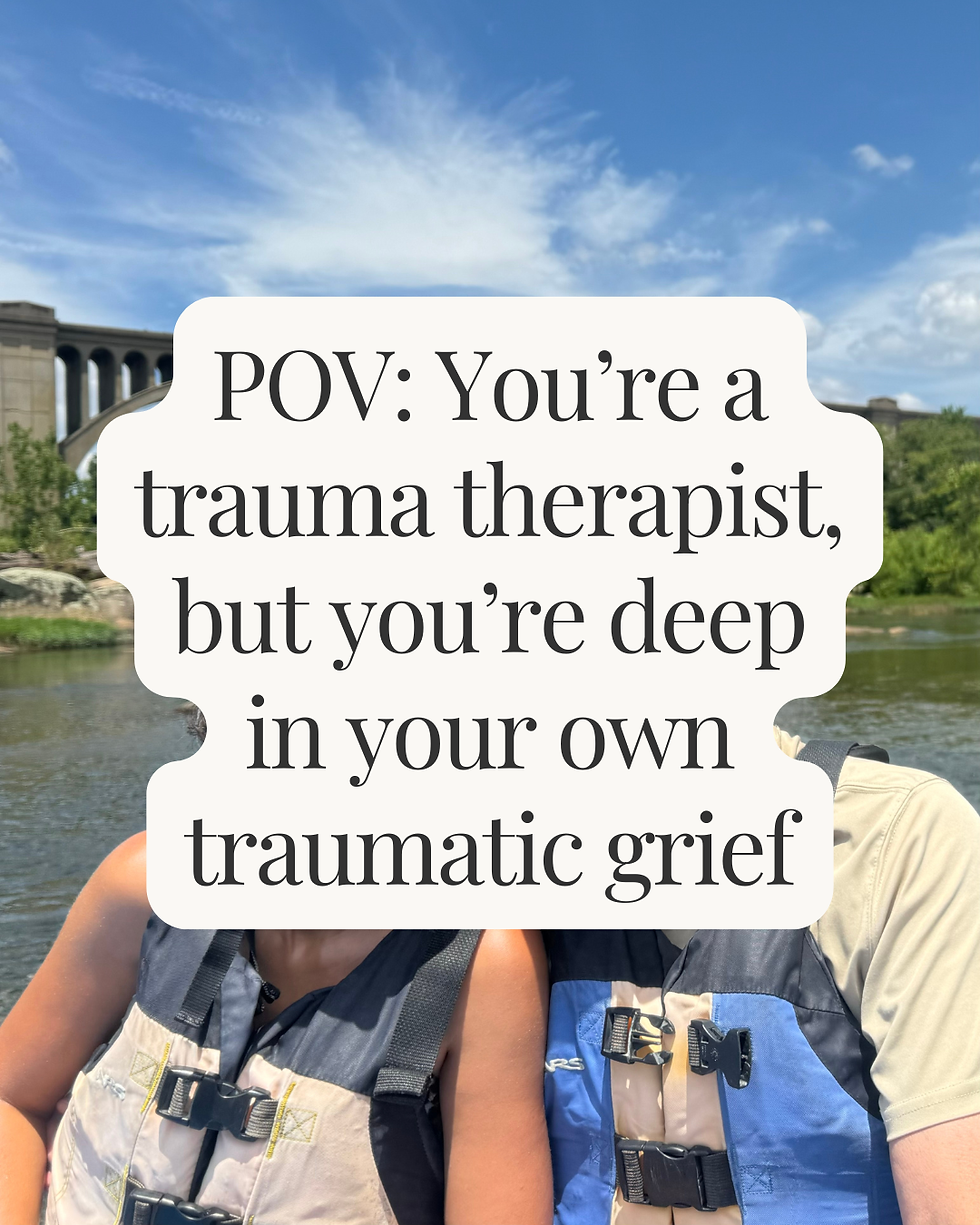Myths about Therapist Self-Care
- Adrienne Loker

- Nov 10, 2024
- 3 min read
Updated: Apr 1, 2025
By Adrienne Loker, LCSW, EMDR, SE
1. “Self-Care” is a thing we do to prevent burnout.
While there’s merit to this myth, we at Seeking Depth to Recovery posit that self-care is our product. Self-care is not just a verb that prevents somebody from being too overwhelmed to do their job, but rather self-care is synonymous with client care. We cannot provide a quality service from an unavailable nervous system that is coregulating anxiety or depression.
To be able to support clients in toning their ventral vagus nervous system, we have to be operating from our own ventral vagus nervous system. To do anything different is to risk retraumatizing clients to their familiar dorsal vagal or sympathetic nervous system co-regulated states.
2. Self-Care is achievable in a 2 day weekend.
Research supports that employees get just as much done in a 32-hour work week as they do in a 40-hour work week, so why push for more? This may sound odd for a therapy practice, because that’s a full extra day of sessions that therapists could be billing. But a trauma therapy practice that doesn't allow space and resources to their therapists to decompress are selling their clients activated nervous systems. By adopting a 32-hour work week, we keep our product (trauma therapy by way of the therapeutic relationship) uncontaminated (nervous systems that are regulated).

2. Self-Care is an individual endeavor that is reliant on effective time management.
This is a tough myth to talk about, because time management is a critical part of a therapist’s job. It’s easy to get sucked into all sorts of boundary pushing with clients and community partners who ask for our time outside of session. On the contrary, I’ve also seen employers put unrealistic tasks on employees’ plates, and then use the time management argument to justify their unreasonable demands.
While our systems aren’t perfect, we have certainly improved them over the last several years. We provide a paid 30 minute buffer between client appointments so that clinicians can take care of themselves, complete any ancillary tasks, seek consultation, read a book, or just stare at a wall. It’s worth noting that our appointments are 90-minutes in length, so perhaps a 15 minute buffer would be more appropriate for 60-minute sessions.
We also offer a monthly training to the community, which we call Community Care. It’s an opportunity for clinicians in the community to receive high quality training at a substantially discounted rate. In these trainings, we learn from the bottom up, and support clinicians in identifying the parallels between their professional and personal stuck points.
If you’d like to work in an environment where self-care is a community effort, you're encouraged to check out our website to see if we’re doing the kind of work you’re passionate about.
Adrienne Loker, LCSW is an EMDRIA Certified Therapist, EMDR Consultant in Training, and Somatic Experiencing Therapist. She owns and operates a trauma-sensitive therapy practice, Seeking Depth to Recovery, that specializes in the treatment of complex and non-verbal trauma, using experiential modalities in an intensive format. In as little as one 90-minute intensive therapy session, participants report marked insight into their anxiety, panic, depression, and trauma compared to their previous experience with traditional talk therapy.
.png)



Comments